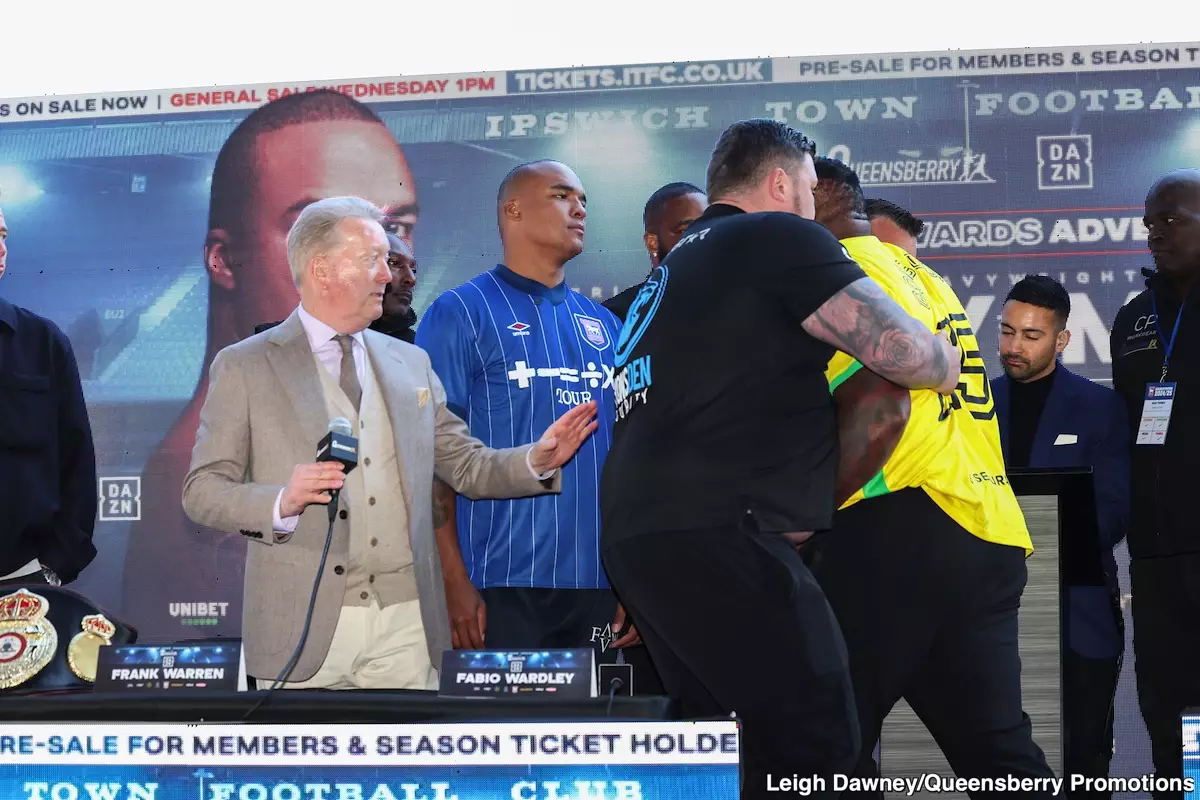In the often tumultuous world of professional boxing, few stories generate as much debate as the reintroduction of athletes who have faced punishment for performance-enhancing drug violations. Promoter Frank Warren’s decision to have Jarrell “Big Baby” Miller face Fabio Wardley in a WBA heavyweight title eliminator raises questions that extend beyond the typical boxing banter. The narrative of redemption is beautiful but complicated, and in the case of Miller, it’s tinged with controversy and skepticism.
Miller, who has a checkered past with two positive PED tests, is stepping back into the limelight at the age of 36, armed with a professional record of 26 wins, 1 loss, and 2 draws (22 KOs). Despite the shadows of his past lurking behind him, supporters assert that he has “served his time”—a sentiment echoing Warren’s defense of Miller’s eligibility. Yet, this begs the question: is basketball truly a clean slate for individuals with such incriminating backgrounds? For many boxing fans, this feels less like justice and more like a calculated promotional strategy.
Past Failures of Miller and His Impact on Boxing Integrity
To many, Miller’s return is fraught with contradictions. Since the end of his suspension, he has yet to record a victory, with a disheartening 0-1-1 record in his last two bouts, one of which ended in a knockout loss to Daniel Dubois. Critics argue that these results shouldn’t qualify him for a title eliminator, raising ethical questions about the WBA’s decision to rank him as #4 among heavyweights. This ranking appears to defeat the purpose of promoting fair competition within the sport.
The discontent among fans is palpable, many sensing that Miller’s presence in the ring represents a broader issue of integrity and adherence to the sport’s ethics. If boxing’s history teaches us anything, it’s that the gap between talent and ethics can create a chasm that is difficult to bridge. Allowing an individual with Miller’s track record to secure high-profile fights not only undermines the integrity of the WBA but may also set a dangerous precedent for the sport itself.
Fighting for Relevance: Wardley’s Dilemma
For Fabio Wardley, the stakes of this matchup are high. With an unbeaten record of 18 wins and 1 draw (17 KOs), Wardley has yet to fully assert himself on the world stage. His selection of Miller, a fighter who has not shown winning prowess since his suspension, hints at a deeper insecurity in his ability to attract attention and earn respect among the boxing elite. While trash talk may pepper Miller’s promotional material, Wardley faces a challenge that goes beyond Miller’s past; his own viability as a contender is on the line.
Wardley’s lack of experience against elite opposition could hinder his career trajectory, much like the trajectory of Tyson Fury, who heavily relied on favorable matchups to build his reputation. As much as Fury’s charisma served as a vessel for his rise, Wardley’s less flamboyant persona risks making him an afterthought, should he falter against a fighter of Miller’s caliber. In essence, this fight is not only a test for Miller but also a pivotal moment for Wardley in redefining his boxing narrative.
The Ethics of Probation and the Future of Boxing
In his defense, Warren aptly equates Miller’s return to that of a released prisoner—having paid his dues and ready to re-enter society. Yet, when applied to the world of sports, this analogy is fraught with shortcomings. While he argues that Miller is under stringent testing protocols through VADA and UKAD, the broader implications for the sport linger. The question remains about whether the incentives for winning can overshadow the ethical obligations owed to athletes across the sport.
Many boxing purists believe that athletes who have previously cheated should face more stringent penalties, including lifetime bans. Opinions vary, and it’s clear that consensus is hard to reach. The idea that someone can use performance-enhancing substances, face consequences, and then return to the ring as if nothing happened is a tough pill to swallow for fans who invest their emotions into the integrity of the sport.
Boxing is evolving alongside its athletes, organizations, and regulatory bodies. As the industry seeks to modernize and elevate standards of performance and conduct, complexities such as those surrounding Miller’s return must be thoughtfully navigated. The forthcoming June 7 fight will not simply be viewed as another night in boxing; it will resonate far beyond the ring, holding potential ramifications for how professional boxing addresses issues of integrity, responsibility, and the consequences of transgressions.


Leave a Reply